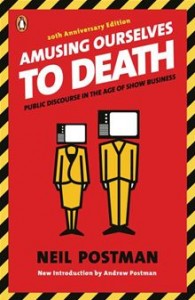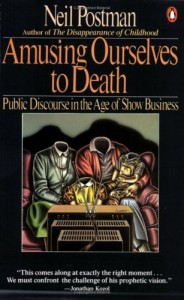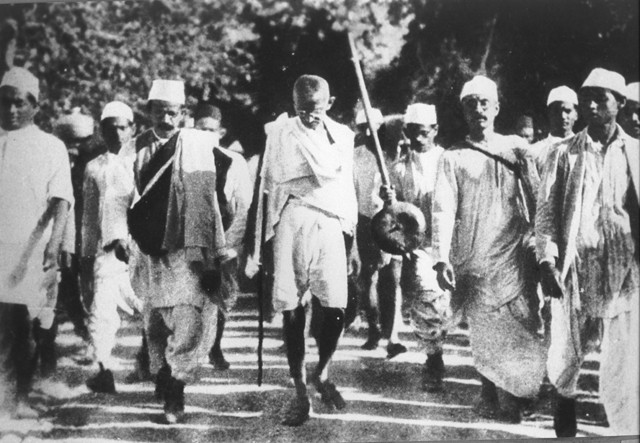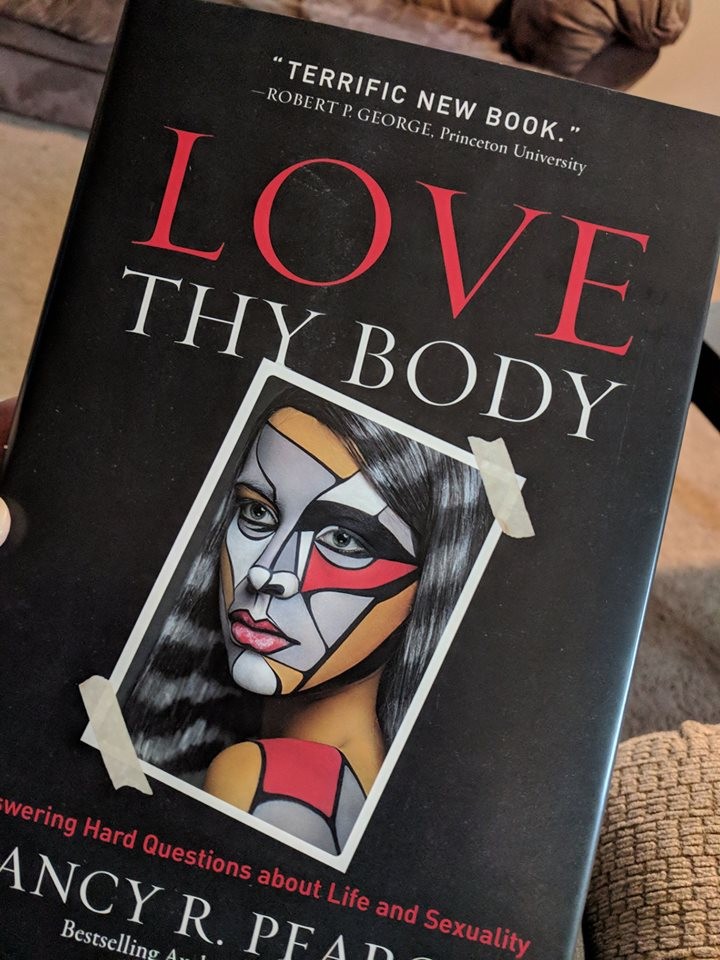Amusing Ourselves to Death
 In the eighties, a movie came out called The Gods Must Be Crazy. A pilot flying over the Kalahari desert in South Africa tosses his empty Coke bottle out the window, and it lands near a tribe of bushmen. They think it’s a gift from the gods, and find it has its uses: crushing grains, making music, I forget what else.
In the eighties, a movie came out called The Gods Must Be Crazy. A pilot flying over the Kalahari desert in South Africa tosses his empty Coke bottle out the window, and it lands near a tribe of bushmen. They think it’s a gift from the gods, and find it has its uses: crushing grains, making music, I forget what else.
But it also creates problems. They have no concept of private ownership, and the Coke bottle begins to breed competition. Eventually, someone uses it as a weapon, and hits someone else over the head. That’s it. One brave bushman takes the bottle to look for the edge of the world, and throw it off.
It’s a good metaphor for technological innovation, which has its uses, but can breed unforeseen and undesirable consequences too. Neil Postman, writing during the Reagan era, attempts to analyze television and its pervasive effects in Amusing Ourselves to Death: Public Discourse in the Age of Show Business. But this is no diatribe against television. It’s an argument in favor of examining television, and the way it has shaped our view of knowledge, culture, and even, Postman would argue, truth itself.
Reading it on the heels of Postman’s more recent book Technopoly, I found some repetition, though the focus of this book is narrower. It makes a persuasive case against television for simplifying, decontextualizing, and misrepresenting reality as a mere stream of unrelated, amusing information. Postman finds the brand of thought fostered in the television age to be far inferior to that of print, or “typographical rationality,” which is more linear and capable of dealing with complexity.
I agree with many of Postman’s points. How could I not? He’s brilliant, prophetic, and often wise. As a teacher, I was struck by the same inability in many of my students that Postman writes of here — an inability to develop a line of thought, or to work with texts at the most basic level. I remember in one freshman comp class using the book Asking the Right Questions to give students the tools for analyzing print matter, and it was a real struggle for them. Reading some of Postman’s examples of political discourse in preceding centuries (the Lincoln-Douglas debates, for instance), or the scathing chapter on televised Christianity as compared to the more intellectually rigorous and discerning religious discourse of the past, provided sobering evidence that ours is in many ways a banal and hollow age — in part because our ability to think has been altered by media designed not to challenge or instruct, but to entertain.
I agree, too, with Postman’s horror at the unthinking, uncritical acceptance we’ve given to television. Using the contrast between Orwell’s totalitarian vision in 1984 and Huxley’s Brave New World as his jumping off point, Postman argues that Huxley’s vision was the truer: a culture in which books don’t need to be banned because no one wants to read them, where power doesn’t have to be forcibly exerted because no one is interested in freedom, and where the desire to be entertained has replaced the desire for truth. If we’re going to allow a technology into virtually every aspect of our lives, we should at least be willing to think consciously and evaluate its values and effects.
I like to watch the Newshour with Jim Lehrer on Friday nights. That’s it. We have a Netflix subscription, but I rarely even watch movies anymore. My children watch a total of perhaps an hour a week, usually videos that we either own or borrow from the library. So I didn’t need much persuasion on the subject of television. One of the main reasons I started homeschooling was the amount of television my daughter’s kindergarten class watched in the name of schooling. At a visceral level, I’ve simply rejected it, mainly because it’s boring and passive and crude (in both senses — blunt-edged, and often crass in its perspective). I think my resistance began when my nephew was an energetic, creative toddler whose face fell into a slack, open-mouthed stupor whenever he was watching television. In a nutshell, that says it all.
But while I would agree with Postman that every form of media carries its own assumptions and values and even its own theory of knowledge, I stop short of his assertion that it alters truth. That’s a little too relativistic for me. I also think that Postman’s bias in favor of print media (a bias I share) has its limitations. The discovery of writing, and the further development of the printing press, were both blessing and curse. They greatly improved and refined knowledge on the one hand, and fragmented or abstracted it on the other. Postman would agree, I think. One of the cornerstones of his perspective is that any technology is a “for better and for worse” proposition. Yet even though he acknowledges this, I got the sense while reading that he would be happy to return to the typographical discourse of the 19th century as the high-water mark of humanity. Was it? The Age of Reason carried its own idolatry, and by elevating rationality over transcendence it paved the way for the further emptying and fragmenting of meaning that the idolatry of the image has accomplished.
“Our notions of truth… have changed as a result of new media replacing the old,” writes Postman. Is this really the case today, a few decades later? I think most of us are aware of the extent to which our culture and politics and spirituality have been turned into entertaining, often plainly false, games through their media packaging. We may not always know what to do about it, but we recognize it because our criteria for truth haven’t changed. I wonder, too, if the internet — not Facebook or YouTube, but the blogosphere and the internet news sources that rely so heavily on the written word — has at all counteracted the image-mindedness Postman observes.
 I can’t quite concede the deterministic notion put forth by Marshall McLuhan that “the media is the message.” I think it overstates the case — kind of like the bumper sticker, “I’m not perfect — just forgiven.” Without being naive about the great pervasiveness and power of our media, I would still venture to disagree with Postman (and with Birkerts, who writes that “We have created the technology that not only enables us to change our basic nature, but that is making such change all but inevitable”) that our fundamental humanness is being changed by our media. It boils down to my belief as a Christian that human beings are created by God, in the image of God, and simply can’t be mutated into a different species of soul on our own power.
I can’t quite concede the deterministic notion put forth by Marshall McLuhan that “the media is the message.” I think it overstates the case — kind of like the bumper sticker, “I’m not perfect — just forgiven.” Without being naive about the great pervasiveness and power of our media, I would still venture to disagree with Postman (and with Birkerts, who writes that “We have created the technology that not only enables us to change our basic nature, but that is making such change all but inevitable”) that our fundamental humanness is being changed by our media. It boils down to my belief as a Christian that human beings are created by God, in the image of God, and simply can’t be mutated into a different species of soul on our own power.
I do find it interesting, though, that Christ — called “the Word” in the book of John — came before the technological era. Think how much easier and more efficient it would have been for him to have been able to broadcast his face and words instantaneously all over the world in a mass crusade. Think how much more clearly those in the back row would have heard the Sermon on the Mount if he’d had a cordless microphone. Instead, God chose an age before highly developed communications.
One conclusion I draw from that is that he found something superior to technology: the personal, in-the-flesh manifestation of himself, stubbornly physical and bound to a context in ways that image-centric mass media are not. If God chose not to take advantage of the technological age, maybe his followers should give some thought to its spiritual ramifications, too. I don’t mean simply the content of given movies or television shows. I mean the whole attractive package of “the age of show business.”


